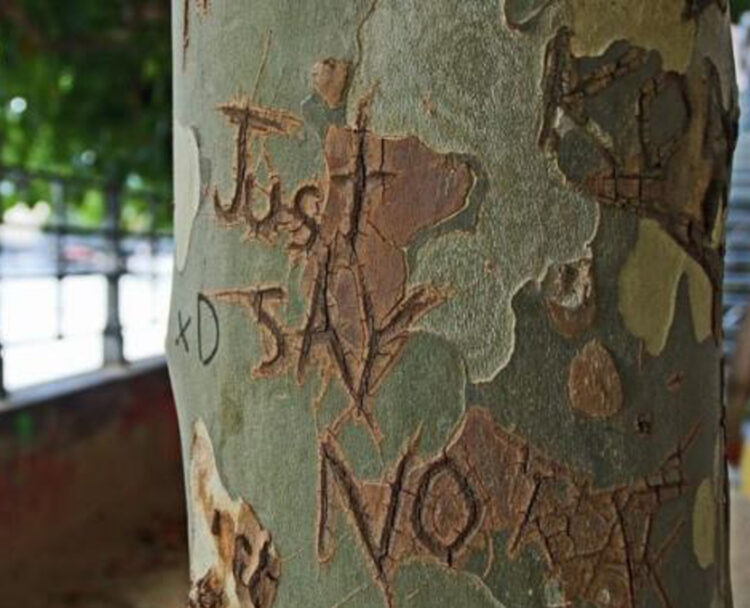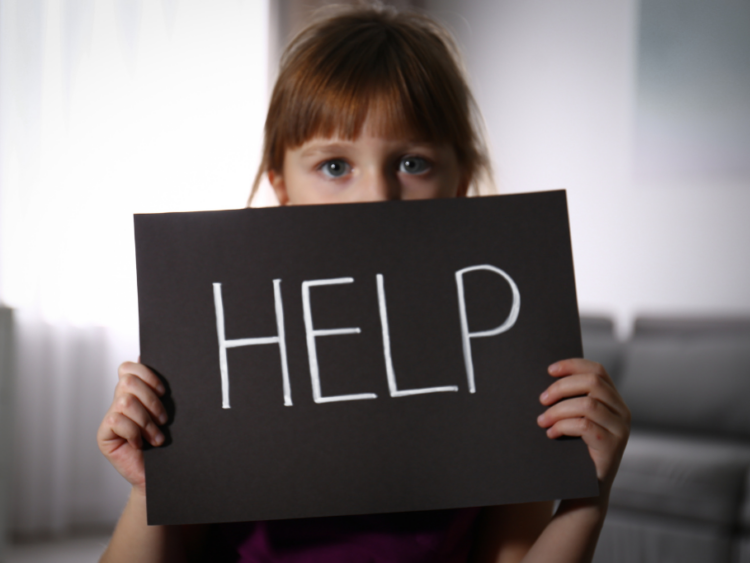Call us now 01926 402 498

Abuse or Banter
Approximately 90% of girls in the UK have been sexually abused at school according to a recent government report.
The worst part is that most girls don’t realise that what they have experienced counts as abuse and will often shrug it off, putting it down to “banter” or “lad culture”. We need to recognise the difference between “banter” and sexual abuse or harassment. Some parents and teachers are also unaware of the implications of such behaviour both for the perpetrator and the victim.
The way I dress does not mean that you can touch me.
An excuse that is often given is “the person was dressing provocatively; they must have wanted the attention”. This is fundamentally wrong. The way someone dresses does not make them worthy of abuse or unwanted attention. Telling young people that the way they dress will dictate the way in which they are treated is extremely damaging to them and society as a whole.
Clothing or fashion does not lead to rape – rapists lead to rape and sexual abuse. Clothes do not provoke sexual assault – thinking like an assailant causes assault!
Throw away comments have a bigger effect than we might realise. The June 2021 Ofsted review into sexual abuse in schools and colleges reported that 92% of girls, and 74% of boys, said sexist name-calling happens a lot or sometimes to them or their peers. Words are sometimes more impactful than actions. Calling someone a “slut” or “slag” regardless of their lifestyle or actions, is not right. These negative words can stay with someone and affect them more deeply than you realise.
If someone makes a comment like this, a young person should not be expected to laugh it off or “get over it”. Firstly, they can tell that person directly that making those comments is not OK and that they do not deserve to be spoken to like that. Secondly, they should report the abuse to a teacher, parent, or anyone in a position of authority. Lastly, if that child or young person has any doubt whether this is banter or abuse; it is abuse and it is not OK.
A common theory is that this stuff happens to everyone, and you just have to let it go. The problem with this is that if everyone continues to “let it go” and accept it as “something that happens”, the more it will be allowed to go on. We are conditioned and influenced by our experiences as children. If this behaviour is not dealt with in the first instance, it could escalate to more dangerous, incriminating acts as the child moves into adulthood.
He pinched my bum, but my friend said to let it go, it just happens.

The legalities
The fact is, this is illegal and the person committing these acts will be prosecuted. If a child is over the age of 10 (the age of accountability) then they will be held responsible leaving that young person with a permanent criminal record. With so many legal acts in place, The Sexual Offences Act, The Misuse of Telecommunications Act, The Malicious Communications Act, The Equality Act, anyone who thinks that they are immune from the law, needs to consider their position carefully. Any form of sexual, emotional, physical, or malicious assault could lead to criminal proceedings.
When banter isn’t banter
The thing about banter is, it’s only funny if both parties find it funny. That seems like an obvious thing to say but young people often confuse banter with abuse because they think the person is their close friend. However, if that child is offended by, or feels uncomfortable with something that is said to them, then it most certainly isn’t banter; it’s effectively bullying. If someone says, “don’t be upset, it’s just a bit of banter”, it isn’t banter.
What’s the difference between sexual abuse and sexual harassment?
Many people are unclear on the difference between harassment and abuse, both in schools and in adult life.
Sexual harassment can happen in a professional (workplace or education) or social situation and involves making unwanted sexual advances or obscene remarks
Sexual abuse is being persuaded or forced into undesired sexual activity.
It’s important to note that this happens to both males and females; sexual abuse and harassment works both ways. It can be committed by someone who is close to you, even a friend or family member.
Examples of sexual abuse and harassment in schools that we need to look out for:
Touching, groping, or grabbing of intimate areas
If the person has not consented, this is abuse
Verbal abuse
This includes the terms “slag”, “slut”, “prostitute”.
Lifting skirts, tops or pulling down trousers
Ever “D-bagged” or “pantsed” someone when you were at school? Pulling down someone’s trousers or underwear, lifting their skirt in public, is sexual harassment not banter and is potentially a criminal activity.
Making unwanted sexual advances physically or verbally
This is when someone has not consented, and the perpetrator continues to talk or act in a sexual way towards them.
Sexting
OFSTED’s June 2021 review reported that nearly 90% of girls, and nearly 50% of boys, said being sent explicit pictures or videos of things they did not want to see happens a lot or sometimes to them or their peers.
I see it all the time but what can I do?
One of the reasons this behaviour is so common and widely accepted is because not many people speak out about or report this stuff. If a young person is experiencing or has witnessed this behaviour and feels confident enough to do so, encourage them to speak up! It’s important to let that person acting inappropriately that the way they are behaving is wrong. If that young person doesn’t want to address the issue directly, they can report it to someone who can. The more children and young people speak out and become aware, the less it will be allowed to go on!
